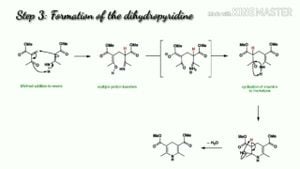Maëva Coucke, the 2018 Miss France, shared her poignant experiences of cyber harassment during her recent appearance on the show "Dans les yeux d'Olivier," which aired on France 2 on January 22, 2025. Her testimony shines a necessary spotlight on the unsettling phenomenon of cybersexism, particularly affecting women online.
Coucke, who first gained the crown at just 23, encountered unprecedented hostility on social media almost immediately post-crowning. "I took on criticism of my body, my weight especially. And there was a wave of hatred," she recounted, shedding light on the oft-ignored, deeply personal impacts of public scrutiny.
The documentary segment highlighted the stories of various women subjected to similar fate, including Anne-Liz, who faced consistent harassment throughout her schooling, and Manon, who became the target of disturbing online raids. Coucke's recounting resonates with many, emphasizing the shared experience of pain women face when societal expectations collide with personal realities.
"I had the feeling of taking a step back," Coucke elaborated. She confronted familiar phrases used against her during her school years, phrases like "manche à balai" and "planche à pain", reemerging now from adults rather than peers. The harshness of these unwanted criticisms resurrected memories of insecurity from her teenage years, reflective of the relentless youth pressures intertwined with public life.
This stark reminder of early trauma was exacerbated by direct attacks on her character, where she became the recipient of vile and objectifying messages. The language surrounding her body became incendiary online, shifting rapidly from praise to derogatory comments. "The body of a woman is judged much more than a man's," she pointedly noted against the backdrop of public opinion and perception.
Coucke emphasized how these experiences are not just personal but indicative of wider societal issues. "It's also hurtful to tell someone 'you're anorexic' as it is to say 'you're obese'. It’s inappropriate," she added, advocating for empathy and introspection from the public.
She also spoke candidly about another form of harassment she faced related to her personal life. Following the announcement of her relationship with François Bonifaci, malicious rumors and character attacks ensued, branding her as a 'thief'. Such narratives are common on digital platforms, where anonymity breeds uncontrollable vitriol.
"The critics were relentless," she maintained, indicating the emotional toll such experiences can exact on targets of online abuse. Yet, Coucke showed resilience, transforming her trauma-driven narrative to one of advocacy. She has vowed to lend her voice to the cause of cyber harassment, urging for more significant awareness and prevention. "I want to help raise awareness about cyber harassment. It's not trivial; victims do commit suicide due to it," she remarked, underscoring the urgent need for societal change.
Despite the distressing nature of the topic, Coucke's strength and authenticity shine through her story. She now strives to cultivate a supportive community on social media, counteracting the negativity with positive interactions. The love she receives makes the weight of inherited criticisms feel much lighter.
Reflecting on her experiences, Coucke does not shy from discussing the lasting impacts of cybersexism and the rampant misuse of social media. "With each year, it's getting worse. New Misses, like Angélique, endure rising levels of racial and gender-based discrimination, and it’s heartbreaking to see the trend continue," she lamented, alluding to the wider issue at hand beyond her own narrative.
This public dialogue surrounding her experiences is not just about her but serves as part of the necessary reckoning with how women are treated and judged online. The message she delivers through her testimony is clear: change is necessary, and voices like hers are integral to pushing for accountability.
For anyone who has ever felt alone against waves of criticism, Maëva Coucke’s words resonate strongly. With open discussions like those initiated on "Dans les yeux d'Olivier," perhaps we can begin to navigate the murky waters of online interactions more wisely, fostering kindness rather than hostility, empathy rather than criticism.
Through her courage and vulnerability, Coucke not only opens the door for necessary conversations on cyber harassment but also fosters hope for future change where digital platforms can be places of support rather than scorn.



